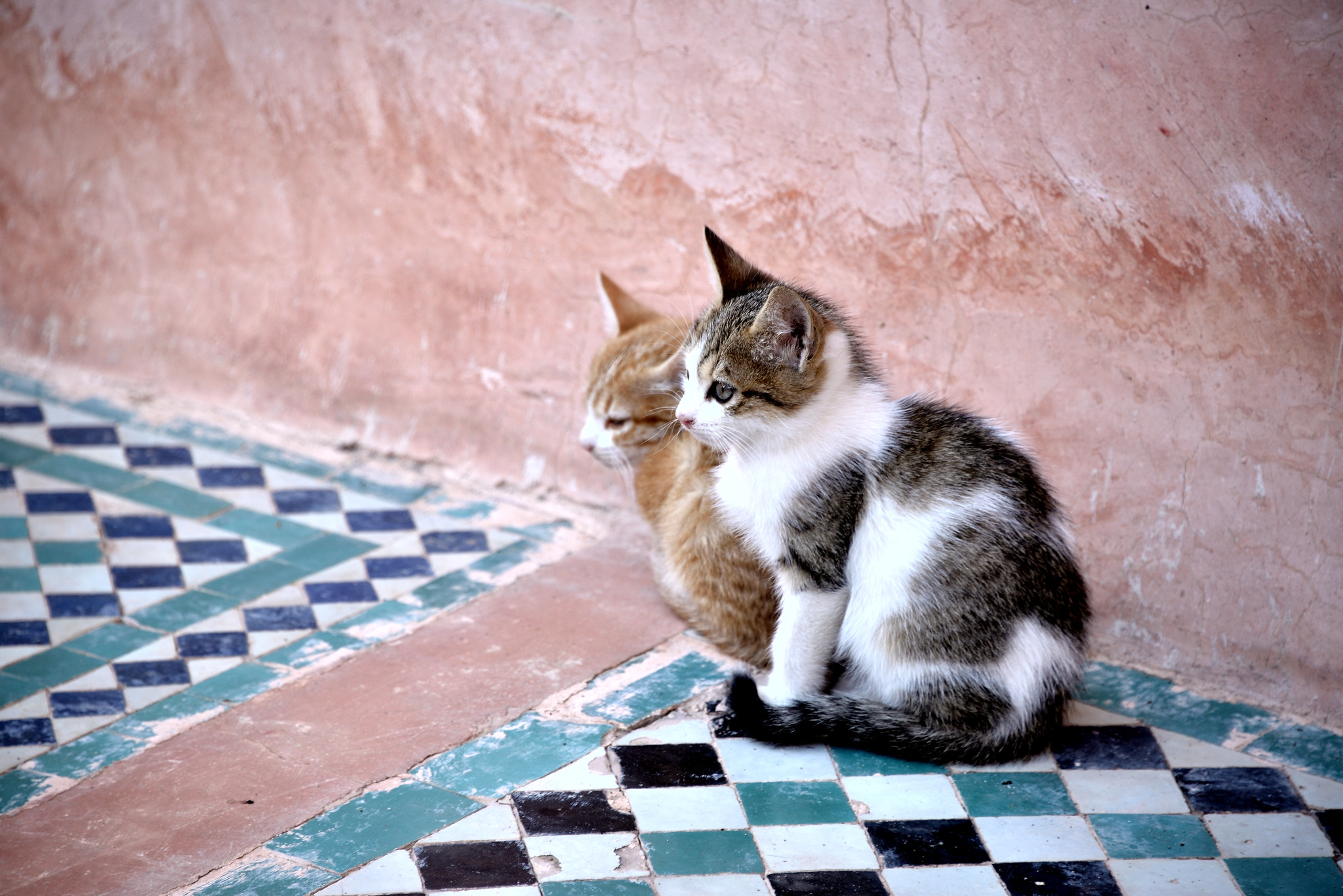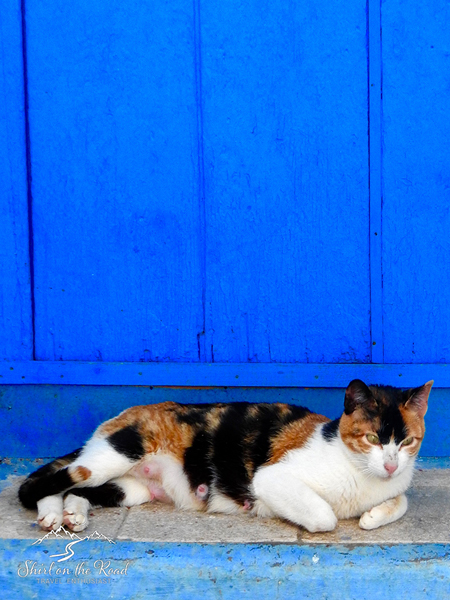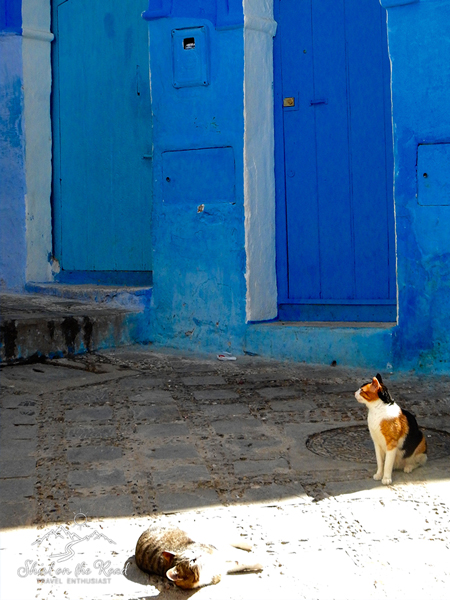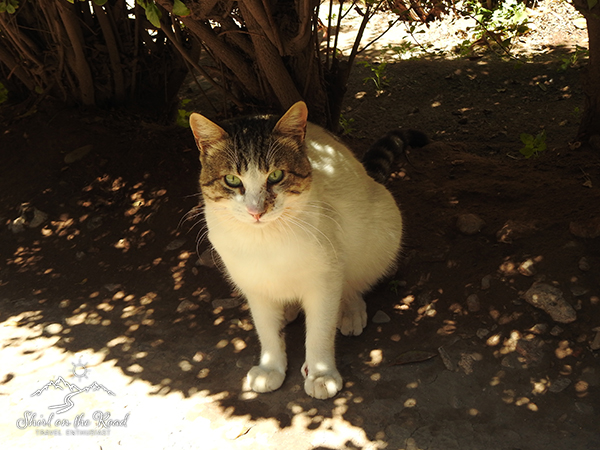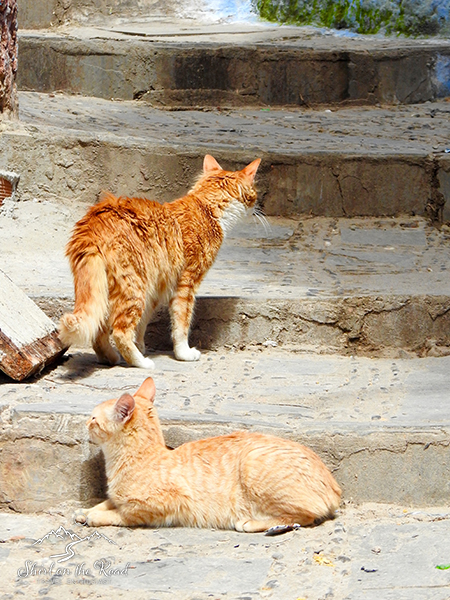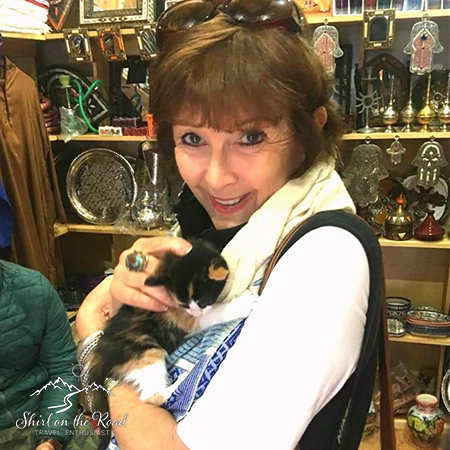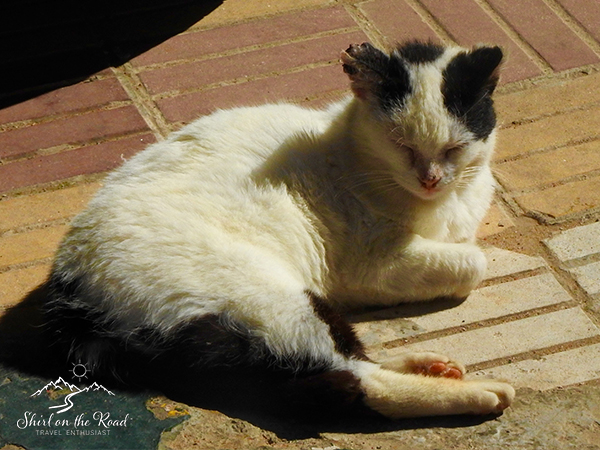5 Night Holistic Adventure Retreat in the Cederberg, South Africa: 23 – 28 October 2022 This…
The Cats of Morocco
Just back from Morocco and there is so much to write about and share – so I will break down all the wonderful stories into smaller articles of interest and let you read each short chapter at your leisure.
The Cats of Morocco
As a Cat Lover, and one who generally attracts the strays to my door, I was overwhelmed to see the number of ‘stray street cats’ in Marrakesh, and took this as a welcome sign to Morocco! Little did I actually understand about the reason for this phenomena.
Cats in the Medinas
These cats own the Medina (the Old City) and can be seen roaming amongst the travellers and shopkeepers, sometimes mewing to attract attention or sleeping in a doorways basking in the sunlight or stalking on the roof tops.
They can be seen in the souks, outside restaurants, in the gardens of the historical sites and there are literally hundreds! They seem to have their own code of communication amongst themselves, never fighting or squabbling about the food offerings they receive.
Whilst the cats are responsive to ones charms, they prefer not to be petted, which I found out to my peril when trying to pick one up! Mission impossible.
It was so heart-warming to see many locals coming out of their homes in the evenings to feed the cats by putting scraps of leftovers for the hungry felines. As Moroccans do not like to waste food, the cats wait patiently for the scraps to come their way.
Respect for Cats
The attitude of respect, love and understanding with which cats are shown by Moroccans seems to be steeped in the Islamic tradition. Cats are admired for their cleanliness, thought to be ritually clean, and are therefore allowed to enter homes and most mosques.
Back in the early days, Arabs kept cats as pets and companions for their beauty and elegance as well as practical reasons of protection from mice overpopulation.
A Heartwarming Tale
“The grammarian Ibn Babshad was sitting with his friends on the roof of a mosque in Cairo, eating some food. When a cat passed by they gave her some morsels; she took them and ran away, only to come back time and time again. The scholars followed her and saw her running to an adjacent house on whose roof a blind cat was sitting. The cat carefully placed the morsels in front of her. Bashbad was so moved by God’s caring for the blind creature that he gave up all his belongings and lived in poverty, completely trusting in God until he died in 1067.”
As would be expected, in Chefschaouen, I stumbled upon a small shop (with strong aroma of hashish), owned by some charming Moroccan guys who had a cat with 4 kittens!
The cats were all well looked after and more open to my usual cat attention than in most Moroccan villages. Totally understandable as they had not yet even ventured out of the shop! The kittens, just 3.5 weeks old, immediately captured my heart, however, the complications of getting one Moroccan feline back to SA is the only reason that she is not homed in Johannesburg.
Morocco Looks After It’s Cats
Donate or Volunteer Time to SPANA
If you are staying in Marrakech for a longer period of time, or are seriously moved by the plight of the city’s street animals, you can contact SPANA to see if they need any hands-on voluntary work. People with veterinary and animal care experience are especially welcomed.
People can take street animals to SPANA’s center, located just a short distance from the heart of the city, for the animal to receive free treatment. Stray cats are given all necessary vaccinations, treated for any illnesses, and sterilized. Their ears are tagged, so that others know the cat has been to SPANA. The organization provides carry bags or boxes. All volunteers need to do is catch a cat, take it to SPANA, and then later return it to the same spot from where it was taken. This is a great way for travelers who have befriended and gained the trust of a particular street cat to help the local feline and human community. Over time, with more and more animals being treated by SPANA, breeding should slow down among the stray population, and overall health levels should improve.
SPANA operates a volunteer programme for qualified vets in Morocco. This is an enormously rewarding experience both for the veterinary volunteers and for SPANA’s local vets.
Contact: hello@spana.org
– Shirley Shearer






